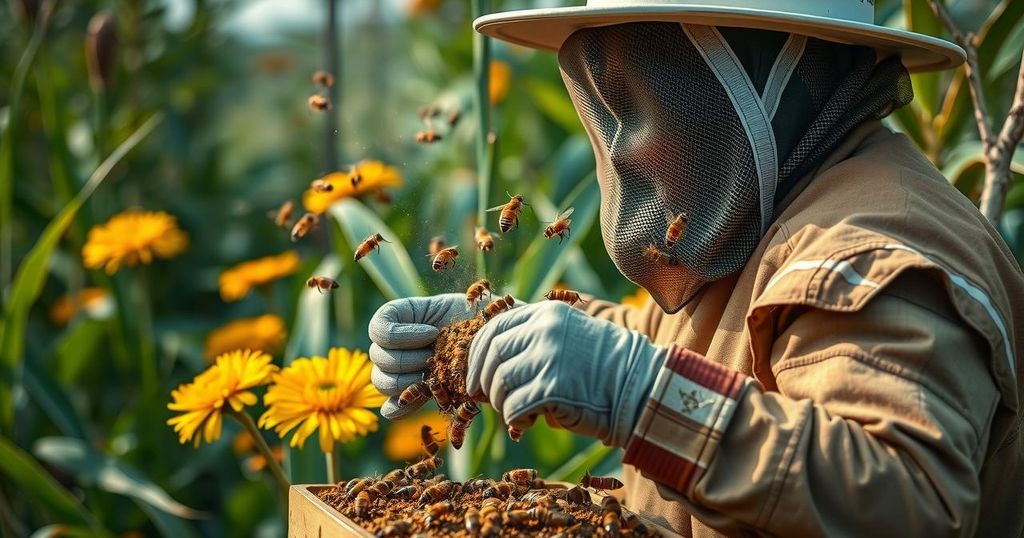Empowering Kenyan Communities Through Beekeeping Amid Climate Change Challenges
Communities in Kenya are increasingly adopting beekeeping as a sustainable livelihood in response to climate change. With traditional farming becoming less viable due to climate impacts, experts advocate for beekeeping as a means to ensure economic stability and promote resilience. This initiative helps local populations adapt to severe weather conditions while providing a source of income and improving biodiversity.
The U.N. Environment Program identifies communities residing in dryland regions as particularly vulnerable to the impacts of climate change. Increased instances of drought and flooding have rendered agricultural and pastoral livelihoods precarious, leading to severe economic hardships. In Kenya, conservation experts are channeling efforts into fostering sustainable, climate-resilient alternatives such as beekeeping. This initiative not only provides communities with a reliable source of income but also helps them adapt to the changing climate by diversifying their livelihood options. Juma Majanga’s report highlights the transformative potential of beekeeping in regions like Garsen, where it is expected to mitigate some challenges posed by climate change.
The phenomenon of climate change has emerged as a significant global concern, particularly impacting vulnerable communities dependent on traditional farming and livestock rearing. In Kenya, changes in precipitation patterns and rising temperatures have resulted in unpredictable weather, exacerbating food insecurity. Consequently, innovative approaches are essential to help these communities adapt. Beekeeping has emerged as an effective means of not only providing economic benefits but also enhancing local resilience to climate variability, as the pollination provided by bees is crucial for maintaining biodiversity and crop productivity. This shift is being facilitated by experts committed to establishing sustainable practices.
In conclusion, the adaptation of communities in Kenya to the adverse effects of climate change through beekeeping represents a significant advancement in sustainable development. By capitalizing on the ecological benefits offered by bees, these communities can achieve greater economic security while simultaneously enhancing their resilience in the face of climatic challenges. The promotion of beekeeping as a viable livelihood alternative underscores the importance of adaptive strategies in combating the effects of climate change for vulnerable populations.
Original Source: www.voanews.com




Post Comment